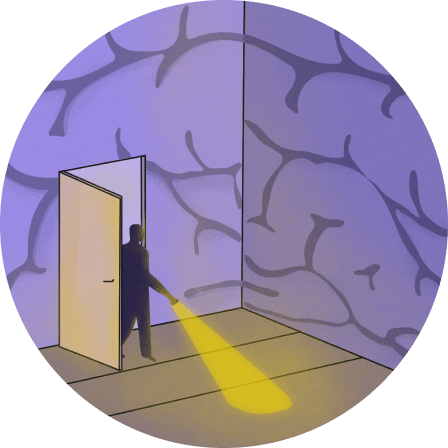
Unconscious Mind
Freud himself did not like the term "subconscious" because he found it too vague. He preferred the term unconscious instead. He even said critics of him who used the term revealed they never read his works! In modern, pop psychology the terms have become more or less interchangeable.
The key distinction is that using a word like "subconscious" communicates a level of control and power for the conscious over the unconscious, which Freud would disagree with. Indeed, people do not want to think that there are parts of themselves they do not know about. Much less, that these parts have their own will over and against their conscious self, and even less so that this part of us is actually the majority of our psyche!
The unconscious is like an ocean upon which sits the tip of the iceberg we call the conscious "I", "me", or "ego" (although, Freud believed that even much of the ego is not actually conscious either). Below the water, but near the surface of consciousness sits the "pre-conscious". This consists of all processes and knowledge accessible by the conscious but not in immediate awareness. The unconscious also has a censor that (half-successfully) monitors what is allowed to escape from the unconscious to see the light of day.
Still, these insights and feelings from the unconscious rarely come into consciousness but merely the preconscious where it may sneak out as a slip of the tongue. This is an important detail because in pop psychology people think that the unconscious is this realm of what is immediately beneath the conscious, and result in these silly and trivial mishaps. But in classical psychoanalysis the unconscious is much deeper than that.
What we witness in these little mishaps are but pinpricks letting in barely visible glimpses of light from the real resplendent star dancing about within most people’s deeper unconscious self. Art, literature, psychoanalysis, religion, and spirituality are the primary modes that humanity has developed in its history to allow access and communication with this light. All methods have their own time and season, advantages, and unique styles.
Psychoanalysis is the most methodical approach humanity has developed to access it--one might say the closest to a "science". But it is really more of an art or practice, like archaeology. The best way to access the unconscious probably involves a combination of all of these methods in a way unique to each person–but which are all funneled through the royal road of dreams.

Dream App
Free dream interpretations

(1,213)




